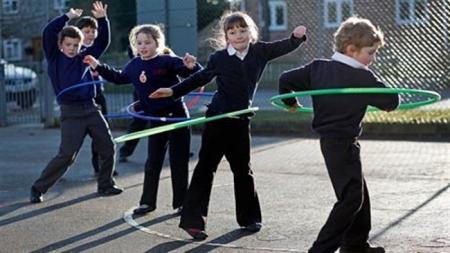
These children have completed 'Paws b', a mindfulness course for seven to 11-year-olds. Ask them about the benefits of meditation, said Westfield teacher Adrian Bethune, 35, and they’ll tell you it flexes the brain’s attentional muscle, which has been proven to help strengthen the prefrontal cortex.” This part of the brain is in charge of concentration, making choices and doing your best, the Telegraph reported.
Meditation is just one strand of new positive education methods starting to build momentum and gravitas in schools. The key idea is to teach good practices such as mindfulness and gratitude that will promote resilience and, it is thought, help children lead healthier psychological lives.
Until recently, these might have been dismissed as woolly theories but with children’s happiness now in the spotlight owing to high levels of self-harm, attempted suicide and other mental health problems, they are starting to be taken more seriously.
“Most heads in both phases, primary and secondary, would agree that there’s a challenge that we all face on the mental health of young people,” said Ian Bauckham, headteacher and former president of the Association of School and College Leaders. “There isn’t any single silver bullet, but I think schools ― teaching people to be resilient to difficulties and challenges ―is certainly one bullet that can be fired at this problem.”
At Bradon Forest School, a secondary in Wiltshire, Assistant Headteacher Julie Hunter introduced a happiness program a year ago after noticing how many of her pupils lacked self-esteem and confidence.
“No matter what they did, it wasn’t good enough,” she said. Hunter completed the University of California’s Science of Happiness course and wrote a program for teachers and pupils based on making them happier as human beings.
The school has since adopted one key idea each term — grit, growth mindset or resilience, for instance —and explored it through assemblies, tutor groups and one-on-one sessions. Pupils might be taught to notice their feelings, or teachers might play calming music in class. Change has been noticeable, said Hunter.
“Whereas in the past the students would say, 'I’m really stressed,’ now they’re able to say, "I need to talk about this," or, "I need to stop and breathe ”. The summer exam period has been much calmer than usual, she reports.
Promoting happiness in schools isn’t new but convincing education leaders of its benefits has taken a lot longer.
Headteacher Anthony Seldon was widely criticized when he introduced the first wellbeing curriculum at Wellington College a decade ago. Wellbeing, it was felt, was antagonistic to academic achievement. And despite the success of the program — Wellington soared up the league tables 'quicker than any school in history' over the next nine years – Hunter reports that her colleagues were initially skeptical about her happiness program.
Schools may now at last be about to enter a period of happiness enlightenment. Education Secretary Nicky Morgan last year vowed to prioritize good mental health, character and resilience as a means of boosting academic standards and in September the UK will get its first wellbeing master’s degree in the philosophy of health and happiness from Birmingham University.
